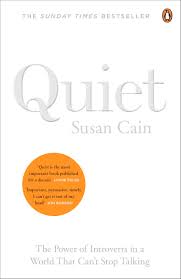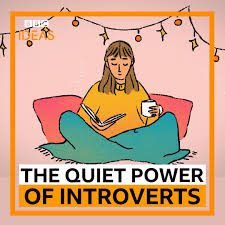Quiet: The Power of Introverts in a World that Can’t Stop Talking, Susan Cain, USA, 2012
I had never heard of this book before I borrowed it from a friend, and I had no idea what to expect, though I later discovered that it had been a best seller when it was first published in 2012.

Leaning somewhat towards the perspective that introverts are a tad better than extroverts (Cain admits that she is definitely an introvert), the book still gives a reasonably good description of both personality types. Set against an American educational and business background where extroversion has been a prized commodity for the best part of the past century, it is understandable that Cain is attempting to make a case for that section of society that does not like to push itself forwards. She comes to the conclusion that innovation is only possible when people are able to work independently; as she says, ‘solitude is an important key to creativity’ (74).
Even though it is easy to discern Cain’s preference for introverts, she does concede that ‘Introverts are not smarter than extroverts…’ then goes ahead to qualify it by saying, ‘But introverts seem to think more carefully than extroverts… ‘ (168).

The first part of the book – concentrating on introverts and extroverts in society – is possibly the most interesting. Cain then commentates on a large number of scientific studies and concludes with several chapters offering self-help for introverts in an extroverted world. Included in these chapters on ‘self-help’ are tips on how an introverted/extroverted parent should raise children with an opposite leaning. To be perfectly honest, I found the second part of the book extremely heavy going, and I was thankful when I finally reached the last page.

My feeling is that no one is completely introverted or completely extroverted: we are a mixture of both. In many cases this ratio is weighted more towards one side than the other, but whether we are introverted or extroverted we still have an understanding, as well as some of the characteristics, of the opposite type. I feel that both introverts and extroverts are necessary in any society, but as with everything a balance must be maintained: an overly introverted society is just as negative as an overly extroverted society.
This is a book that would possibly have more impact in an extroverted country, like America, but it doubtlessly will even appeal to people from societies where introversion is both the established and appreciated norm. Not the best book I have read this year but then again not the worst.